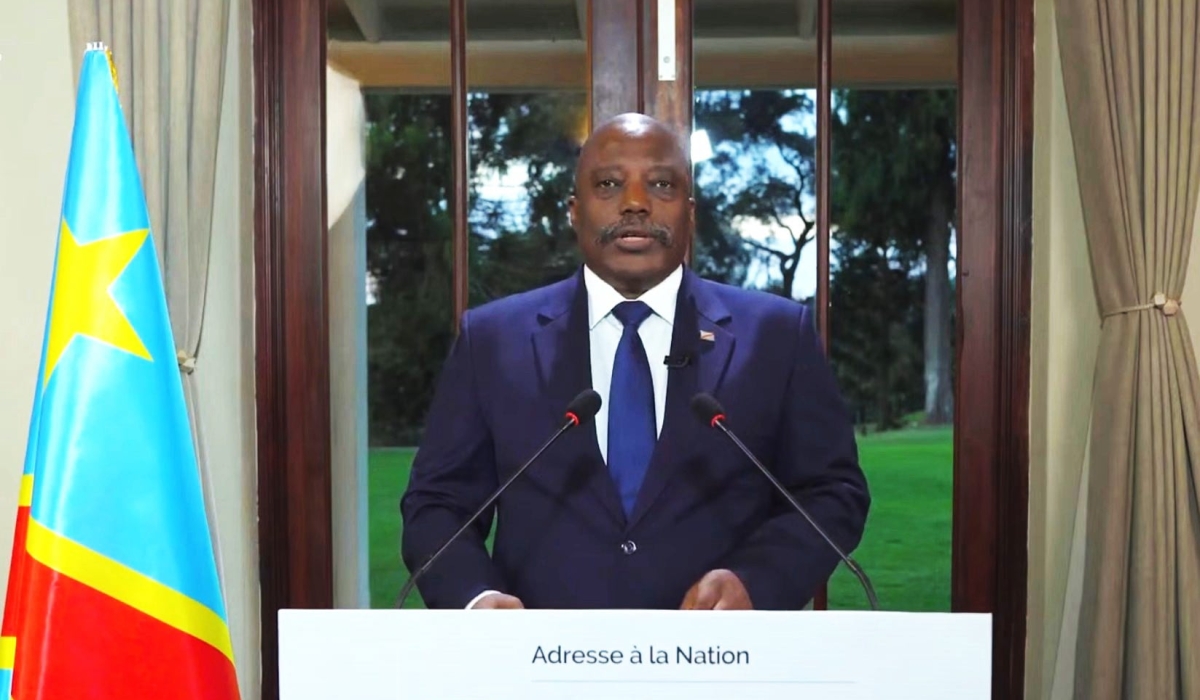
Kabila is hailed as a “great political leader” in Goma
On Monday, May 26, the AFC/M23 rebels, who hold the key city of Goma in eastern DR Congo, declared that former President Joseph Kabila has returned, ending his self-imposed exile of six years.
Before leaving for Southern Africa in April, Kabila, who is accused of treason in his own nation due to his alleged ties to the rebels, returned to Goma, the provincial capital of North Kivu.
In a post on X on Monday morning, AFC/M23 political leader Corneille Nangaa stated, “We are happy to see this great political figure return home.” “Instead of staying in forced exile, he made the right decision.”
His return to Goma comes only two days after he charged that the government of President Felix Tshisekedi had undermined national cohesiveness and left the country weak and unstable through populism, lying, hubris, the institutionalization of nepotism and tribalism, and impunity, among other evils. The 53-year-old Kabila governed the Democratic Republic of the Congo from 2001 until January 2019, when Tshisekedi, the current leader, took over.
Later, the two became estranged, with Kabila accusing Tshisekedi of breaking a deal that had landed him in power. Kabila has been charged by Tshisekedi with supporting the AFC/M23 rebels.
On May 22, the Congolese Senate approved a resolution permitting legal action against Kabila, a senator for life, and lifting his immunity.
Kabila’s assets have also been seized, and he is facing treason and war crimes charges from the military high court. The criminal charges, according to his supporters, are a “witch hunt.”
Kabila referred to Tshisekedi as a “demagogue” and accused him of “discriminating and stigmatizing certain sections of our people, the institutionalization of tribalism and nepotism” in remarks made Friday from an undisclosed location following his removal of immunity.
The former president has already accused Tshisekedi of mishandling the issue in eastern DR Congo and rejected his attempts to place the responsibility on outside parties. He broke his silence on the war in February of this year.
The battle between Tshisekedi and the rebels, who have ruled over large areas of land, including Bukavu, the provincial capital of South Kivu, since early 2025, may enter a new phase with his return to Goma city.
Additionally, Tshisekedi is accused of suppressing opposition groups, like as Kabila’s People’s Party for Reconstruction and Democracy (PPRD).
Nangaa, who oversaw the Congolese electoral commission (CENI) in the latter years of Kabila’s presidency, declared, “[Joseph Kabila] is welcome in Goma, in the only part of the country where arbitrariness, political persecution, death sentences, tribalism, discrimination, hate speech… do not exist.”
Numerous delegations and notable individuals from all backgrounds have visited Goma since last February. They may observe the Alliance Fleuve Congo’s (AFC/M23) efforts to make people and their property safer.
In January of this year, the M23 rebels, who have been engaged in combat since late 2021, seized Goma. In February, Bukavu was taken over.
In 2012, the rebels took control of Goma for a few days before withdrawing and fleeing. The rebels have controlled more territory and for longer now that they are a part of a larger alliance that was established in December 2023 and has received strong backing from Congolese politicians.
The first direct negotiations between the rebels and the Congolese government since 2021 took place in April, facilitated by Qatar. The Doha discussions have not yet resulted in an agreement, despite the two parties’ April 23 announcement of their commitment to a ceasefire.
Massad Boulos, US President Donald Trump’s Senior Advisor for Africa, met with Congolese President Félix Tshisekedi and President Paul Kagame on May 15 to review the progress of a planned peace deal that is anticipated to be completed in June. With a focus on tackling the underlying causes of the decades-long insecurity crisis, such as the existence of the Kinshasa-backed FDLR in DR Congo, a group established by survivors of the 1994 Genocide against the Tutsi, the expected peace deal aims to end the ongoing conflict in eastern DR Congo.
The deputy to Nangaa, Bertrand Bisiimwa, stated during a press conference in Goma on Sunday that they were no longer requesting anything from the Kinshasa government.
“We are now a liberation movement; we have moved past the stage of demands,” Bisiimwa declared.
“This indicates that we have issues that need to be resolved, either with or without Kinshasa, but we do not have a list of demands to make to Kinshasa.”
All Categories
Recent Posts
Tags
+13162306000
zoneyetu@yahoo.com



